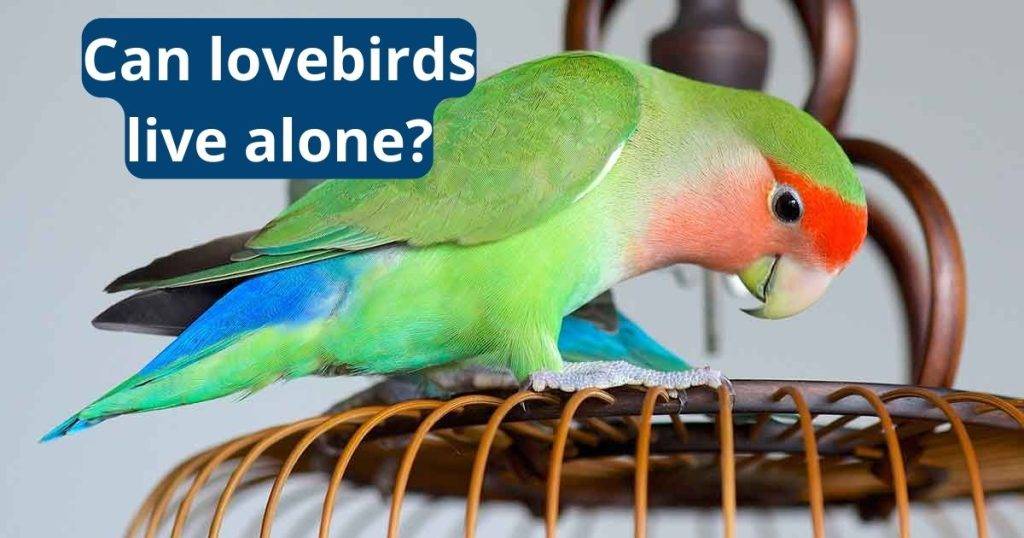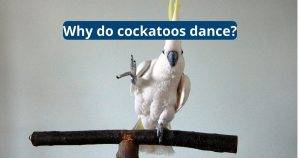Can Lovebirds Live Alone?

Lovebirds need interaction with their humans and should not be left alone for long periods of time. They also need regular visits to the veterinarian, a healthy diet, exercise, and a draft-free environment. If left alone for too long, a lovebird can develop stress and anxiety. This can lead to feather-plucking and screaming.
They are social birds
Lovebirds are a species of bird that are naturally monogamous, meaning they pair up for life. They will often groom each other, and even feed each other if they are hungry. These birds have broad, powerful bills that are perfect for cracking seeds and tearing into fruits. They also nibble on hard objects to keep their beaks and nails trimmed and in good shape.
It is a myth that lovebirds need to be kept in pairs and will die if they are not. While it is true that lovebirds are social and need human contact, they can also live alone if they have plenty of enrichment activities. It is also important to give your lovebird a large cage and lots of free space for exercise.
Make sure to spend time with your lovebird every day to bond with it. It will appreciate your attention and may become tame over time. Also, avoid spooking or rough handling it because this will cause stress. A constantly stressed bird can pass away prematurely.

They are easy to care for
Lovebirds are very active birds that will chatter all day. They will wake up at dawn, eat and drink then begin to chirp. They are natural paper shredders and will enjoy toys made of yucca, coconut shell, or acrylic. They will also play with a swing or climb ladders. Bonded pairs will groom each other throughout the day.
Newborn lovebirds should be left with their parents until they are fully fledged. Newborns are extremely small and fragile, and mistakes in their care can be deadly. It is also important to remember that in the wild lovebirds hide their illnesses from predators. This is why they need to be taken to a qualified avian vet when they show signs of illness.
It is important to feed lovebirds a well-balanced diet. They should be fed a high-quality seed mixture and fresh, thoroughly washed greens. It is also recommended to feed them small amounts of fruit and vegetables. A healthy diet will help them avoid feather plucking and overgrown beaks and nails. It is also a good idea to let them out of their cages to fly and exercise.

They are a good pet
Lovebirds are great pets and can be tamed easily, but they still require lots of one-on-one interaction with their owners. They need to be taken out of their cages at least an hour each day for play and socialization. They also need to have perches of different widths and textures in their cage, which will help their feet stay healthy.
Because of their social nature, it’s best to keep these birds in pairs if possible. However, if you do choose to keep them alone, make sure they have plenty of toys and perches in their cages to chew on. Also, avoid smoking or strong odors in the house as they can be sensitive to them.
They can be kept with other birds of the same species, but they should be supervised when they are housed with small animals (like cats or dogs) and other bird genera. Their dominant and territorial nature may cause them to fight or even bite other birds.

They are easy to tame
Lovebirds are hardwired to bond strongly with their bonded partner. This means that they are likely to protect their owners from people and things they perceive as threats. This can lead to aggression and biting in certain cases. It is also important to give your bird plenty of interaction and mental stimulation. This can help alleviate feelings of loneliness and depression that may lead to self-neglecting behaviors, such as plucking feathers.
When you are ready to tame your lovebird, be patient and approach it calmly and slowly. If you attempt to pick up the bird too quickly, it will be confused and scared. Avoid speaking harshly or threateningly to your lovebird, as this will only make it more fearful.
When you are ready to introduce yourself to your lovebird, talk to it in a quiet voice and gently place your hand inside the cage. You can also try introducing it to new foods by hand feeding it oatmeal or cream of wheat. Also, you can bathe your lovebird by putting it in a flat earthenware dish or spraying them with a light mist of lukewarm water.



